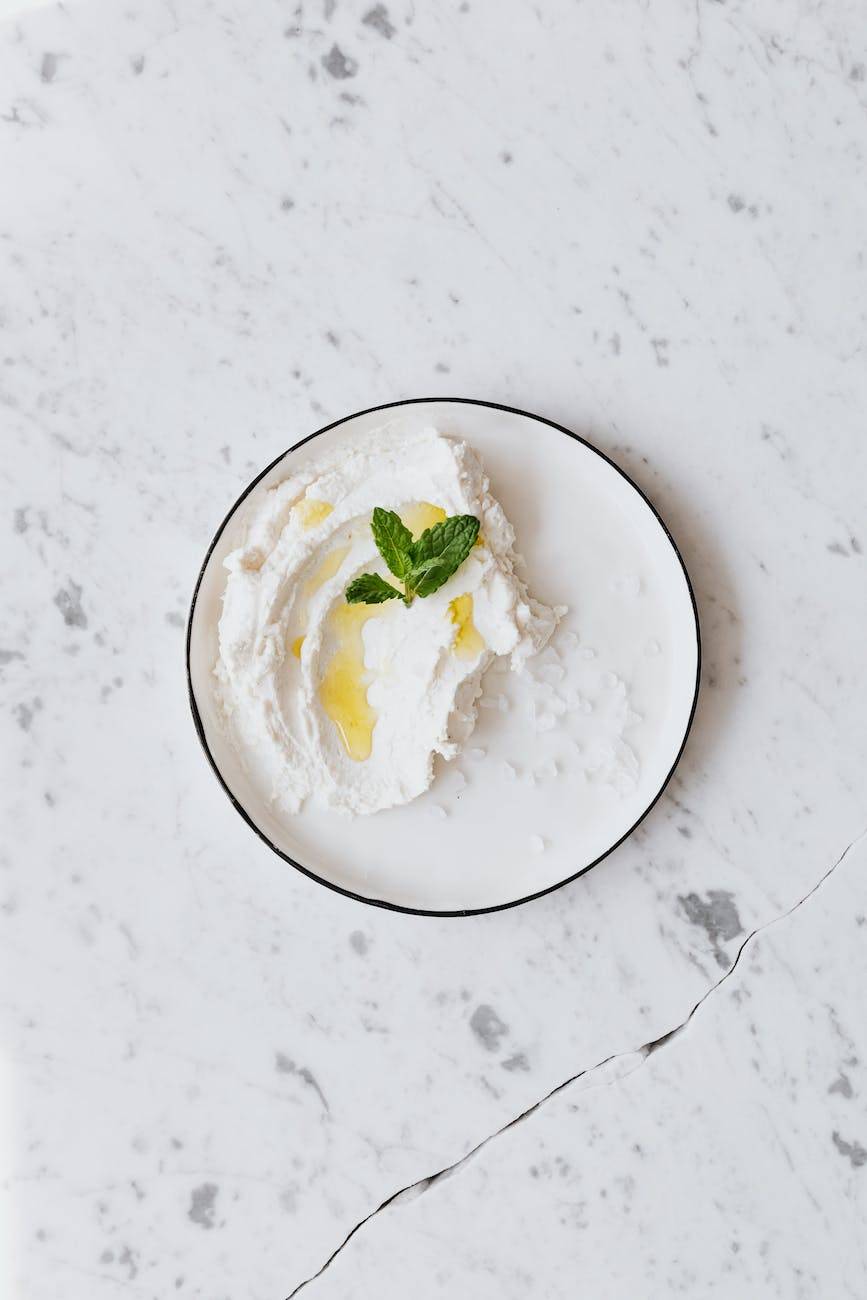Introduction to Bulgarian White Brined Cheese
Embarking on a culinary exploration, our first stop is the savory delight known as Bulgarian white brined cheese, or “sirene”. A staple in Bulgarian cuisine, this cheese carries a rich history and unique production process.
Historical Background
Bulgarian white brined cheese has a long-standing history in Bulgaria, its production dating back over 1,000 years (Kashkaval Tourist). A vital part of the country’s culinary traditions, this cheese, fondly known as “sirene”, has been an integral part of Bulgarian meals for centuries. The enduring popularity of this cheese is a testament to its unique flavor and versatility in various dishes, making it a beloved culinary treasure in Bulgaria.
Production Process and Ingredients
The production of Bulgarian white brined cheese involves a specific process and carefully chosen ingredients. The cheese is typically made from a mixture of sheep’s, cow’s, and/or goat’s milk, providing it with its distinctive tangy flavor and crumbly texture.
The process begins with the milk being carefully heated and curdled. The resulting curds are then pressed to remove whey and create the cheese’s signature crumbly texture. Following this, the cheese is placed in brine, which aids in its preservation and contributes to its unique flavor profile.
Whether it’s used as an ingredient in traditional Bulgarian dishes or enjoyed on its own, Bulgarian white brined cheese is a testament to the country’s rich culinary heritage. Discover more about this and other Bulgarian cheeses on our Bulgarian cheese page.
Characteristics of Bulgarian White Brined Cheese
Bulgarian white brined cheese, also known as “sirene,” is a significant element in Bulgarian cuisine, with a history of over 1,000 years (Kashkaval Tourist). This section will dive into the characteristics of this delightful cheese, including its flavor profile, nutritional information, and culinary uses.
Flavor Profile and Texture
Bulgarian white brined cheese is produced based on a mixture of sheep’s, cow’s, and/or goat’s milk. It exhibits a distinctive tangy flavor and crumbly texture that sets it apart from other cheese varieties. Despite the tanginess, it possesses a milder flavor compared to feta cheese and a softer texture, making it a unique and pleasing addition to various dishes.
Nutritional Information
Bulgarian white brined cheese is not only a treat for the taste buds but also a good source of nutrients. It’s rich in protein and calcium, providing essential nutrients that contribute to a balanced diet. Here’s a brief overview of the nutritional content per 100g serving:
| Nutrition | Amount |
|---|---|
| Calories | 274 |
| Protein | 18.1g |
| Fat | 22.6g |
| Carbohydrates | 1.5g |
| Calcium | 700mg |
Please note that these values might vary based on the type of milk used in the production process.
Culinary Uses
A versatile cheese, Bulgarian white brined cheese can be enjoyed on its own or incorporated into a range of dishes. It’s often crumbled over salads, used as a filling for pastries, or melted in dishes, adding a creamy and tangy element to the meal.
In traditional Bulgarian cuisine, it features prominently in dishes such as Shopska Salad, Banitsa, and Sarmi. Whether you’re a culinary enthusiast exploring new flavors or a cheese lover searching for a new favorite, Bulgarian white brined cheese is a delightful option. To discover more about its use in Bulgarian cuisine, check out our article on Bulgarian dishes.
As we journey further into the world of Bulgarian white brined cheese, the next sections will compare it with feta, explore where to buy it, and provide tips on how to properly store it. So, stay tuned!
Bulgarian Dishes Featuring White Brined Cheese
Bulgarian white brined cheese, often compared to feta cheese, is an essential ingredient in many traditional Bulgarian dishes. Its unique taste and mildly acidic nature make it a versatile dairy product that can be used in a variety of culinary applications. In this section, we will explore some of the most popular Bulgarian dishes that feature this delicious cheese, including Shopska Salad, Banitsa, and Sarmi.
Shopska Salad
Shopska Salad is a traditional Bulgarian dish that prominently features Bulgarian white brined cheese. This refreshing salad is a blend of ripe tomatoes, cucumbers, and bell peppers, topped with a generous portion of grated Bulgarian white brined cheese. The cheese adds a creamy texture and a slightly salty flavor to the salad, complementing the fresh and crunchy vegetables perfectly. For a truly authentic experience, Shopska Salad is traditionally served with a shot of Bulgarian rakia, a fruit brandy that is popular in the region. You can find more about the composition and preparation of this salad in our Bulgarian cheese section.
Banitsa
Banitsa is another classic Bulgarian dish where the Bulgarian white brined cheese shines. This savory pastry is made by layering a mixture of eggs and cheese between sheets of filo pastry, which is then baked until golden and flaky. The cheese lends a tangy flavor to the pastry, balancing out the richness of the eggs and butter. The result is a deliciously satisfying dish that can be enjoyed at any time of the day. Find out more about how this dish is prepared in our Bulgarian feta section.
Sarmi
Sarmi, or stuffed vine leaves, is a traditional Bulgarian dish that often includes Bulgarian white brined cheese. The vine leaves are filled with a mixture of rice, spices, and sometimes minced meat, along with the cheese. The stuffed leaves are then rolled into small parcels and cooked in a tomato-based sauce. The Bulgarian white brined cheese adds a creamy and tangy element to the dish, enhancing the overall flavor profile. More about the preparation and variations of this dish can be found in our Bulgarian white cheese section.
Bulgarian white brined cheese is a versatile ingredient that can transform simple ingredients into flavorful and satisfying dishes. Whether grated over a fresh salad, layered into a flaky pastry, or tucked inside vine leaves, this cheese is sure to elevate your culinary adventures. Explore more about the bulgarian white brined cheese in our dedicated section.
Comparing Bulgarian White Brined Cheese and Feta
When it comes to the world of cheese, Bulgarian white brined cheese, also known as “sirene,” holds a special place. This is especially true when it is compared to its close cousin, feta cheese. Both cheeses share similarities in production and taste, but they also have distinct qualities that make them unique.
Similarities and Differences
Bulgarian white brined cheese and feta cheese are often made from similar types of milk, including sheep’s, cow’s, or goat’s milk. However, feta is traditionally crafted only from sheep’s milk or a blend of sheep’s and goat’s milk.
In terms of flavor, Bulgarian white brined cheese boasts a milder taste compared to feta cheese, which is known for its stronger and saltier profile (source). The texture also differs between the two cheeses. Bulgarian white brined cheese tends to be softer and creamier, while feta cheese presents a firmer and crumbly texture (source).
While feta cheese enjoys international recognition, Bulgarian white brined cheese is steadily gaining popularity among cheese enthusiasts worldwide.
| Aspect | Bulgarian White Brined Cheese | Feta Cheese |
|---|---|---|
| Milk Used | Sheep’s, Cow’s, Goat’s | Sheep’s or a blend of Sheep’s and Goat’s |
| Flavor | Milder | Stronger and Saltier |
| Texture | Softer and Creamier | Firmer and Crumbly |
Substituting One for the Other
Given their similarities, Bulgarian white brined cheese can be used as a substitute for feta cheese in many dishes, and vice versa. However, it’s important to consider the flavor and texture differences between the two. The milder flavor of Bulgarian white brined cheese might not provide the same bold punch as feta cheese in certain recipes. Conversely, the stronger, saltier taste of feta might dominate a dish that calls for the more subtle qualities of Bulgarian white brined cheese.
When substituting one cheese for the other, it’s helpful to adjust the quantities to suit your taste preferences. For example, you might want to use slightly more Bulgarian white brined cheese if you’re substituting it for feta, to account for its milder flavor. Alternatively, you could use less feta if you’re replacing Bulgarian white brined cheese to avoid overpowering the dish.
For a more in-depth look at Bulgarian cheeses, particularly those made from sheep’s milk, check out our articles on bulgarian sheep cheese and bulgarian sheeps milk cheese. If you’re interested in buying Bulgarian feta in your local area or online, our guide on where to buy bulgarian feta will be a valuable resource.
Buying Bulgarian White Brined Cheese
For cheese lovers and culinary enthusiasts, knowing where to purchase Bulgarian White Brined Cheese is a must. Whether you’re looking for a local store or prefer the convenience of online shopping, the following options will guide you to the right places.
Local Stores and Supermarkets
If you prefer to examine the cheese before buying, local grocery stores and supermarkets are your best bet. It’s common to find Bulgarian white brined cheese, also known as “sirene,” in stores that cater to European or specifically Eastern European clientele. Due to its international recognition and popularity among cheese lovers worldwide (Kashkaval Tourist), it has become more widely available in many regions.
To ensure the authenticity and quality of the cheese, look for its traditional name “sirene” or the term “Bulgarian white brined cheese” on the label. Also, check for geographical indications that confirm it was produced in Bulgaria.
Online Shopping Options
For those who value convenience and variety, online shopping is an excellent way to purchase Bulgarian white brined cheese. Numerous online retailers specialize in international and specialty foods, offering a diverse selection of Bulgarian cheeses, including the beloved sirene.
When shopping online, it’s essential to read customer reviews and product descriptions carefully to ensure you’re getting high-quality cheese. Moreover, check the shipping and storage methods employed by the retailer. Proper shipping and packaging are crucial for maintaining the quality and freshness of the cheese.
Before you finalize your purchase, make sure to also check the return policy and customer service options. These factors can come in handy if you encounter any issues with your order.
Whether you’re planning to make a traditional Bulgarian dish or simply want to savor the unique taste of Bulgarian white brined cheese, these shopping options make it easy to enjoy this savory delight at home. For more information on Bulgarian cheese and its culinary uses, visit our pages on bulgarian cheese and where to buy bulgarian feta.
Proper Storage of Bulgarian White Brined Cheese
Proper storage of Bulgarian white brined cheese is essential to maintain its freshness and quality. Whether you’re storing it for short-term or long-term use, there are a few key things to keep in mind.
Short-Term Storage
For short-term storage, Bulgarian white brined cheese should be kept in the refrigerator. It’s recommended to place the cheese in an airtight container or wrap it tightly in plastic wrap. This prevents the cheese from drying out or absorbing odors from other foods in the refrigerator.
| Storage Method | Shelf Life |
|---|---|
| Refrigerator | Up to 2 weeks |
Properly stored, Bulgarian white brined cheese can last for up to 2 weeks in the refrigerator. If the cheese becomes too dry, it can be rehydrated by soaking it in water or milk for a short period of time before consuming.
Long-Term Storage
For long-term storage, the best method to preserve the quality and flavor of Bulgarian white brined cheese is to store it in brine or a mixture of water and salt (source). This helps to prevent the cheese from drying out and maintains its unique taste over time.
| Storage Method | Shelf Life |
|---|---|
| In Brine/Water Salt Mixture | Extended Shelf Life |
Remember, even with long-term storage, it’s important to check the cheese regularly for any signs of spoilage. If you notice any changes in color, smell, or texture, it’s best to discard the cheese.
Whether you’re enjoying your Bulgarian white brined cheese in a shopska salad or savoring it on its own, proper storage will ensure that every bite is as delicious as the last.




Leave a Reply